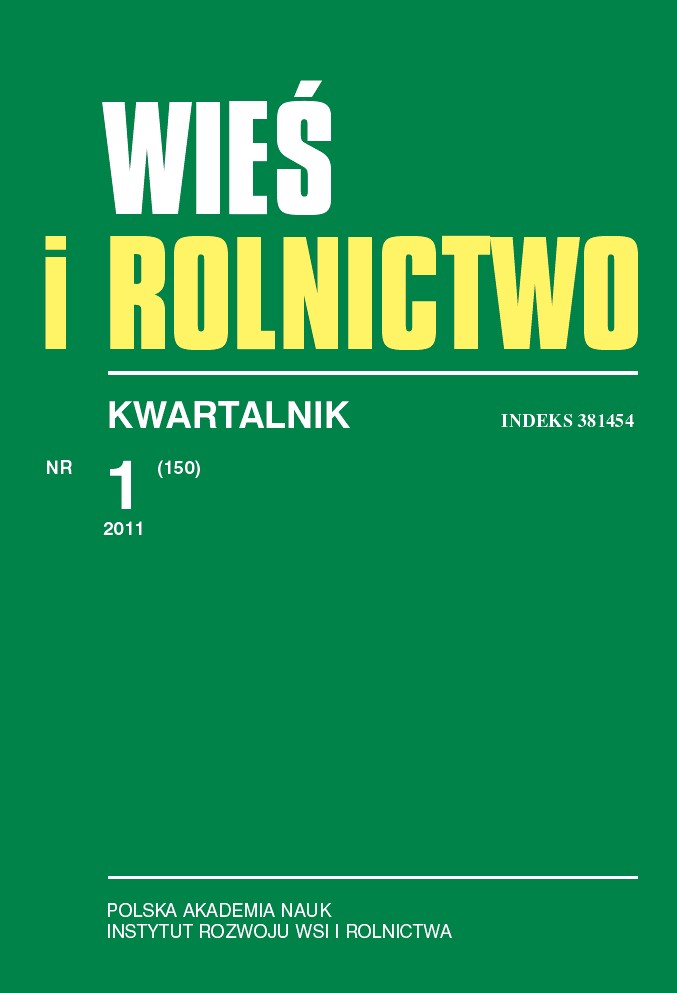
Wiejskość jako kategoria socjologiczna
Abstrakt
Szkic jest przyczynkiem do toczącej się w naukach dyskusji na temat pojęcia „wsi” i „wiejskości” w społeczeństwie postindustrialnym. Wychodzi od charakterystyki obowiązującego do siedemdziesiątych paradygmatu/opozycji „miasto – wieś”, przytaczając toczącą się w socjologii dyskusję o jego nieadekwatności. Wskazuje na fakt, że powszechnie używane obecnie pojęcie „rural” może być analizowane na różnych poziomach, oraz omawia różne sposoby konstruowania pojęcia „wieś” i pojęcia „wiejskość”. Koncentruje się na konstruktywistym sposobie definiowania tych pojęć, ujęciu typowym dla socjologii. Wskazuje przy tym na subiektywizm tego sposobu definiowania i niebezpieczeństwa z tym związane. W części empirycznej poddaje analizie ponad 40 raportów z badań CBOS, analizując konteksty, w jakich pojęcie „wieś” lub „wiejskość” się pojawia i jak niewielka jest jej użyteczność w zestawieniu z 4 typami, wyróżnianych według wielkości miast. We wnioskach podkreśla stereotypowość opisów wsi, konieczność jej wpisania w kontekst oraz subiektywizm i polityczne uwikłania jej definiowania w Polsce.
Abstract
This study is a contribution to the ongoing scientific discussion on the post-industrial society's notion of ”rural community” and ”rusticity”. It starts with a description of the paradigm/opposition ”town – village” that was popular up to the 1970s, quoting arguments presented in sociological discussions to prove its inadequacy. It points to the fact that the notion ”rural”, which is being commonly used at present, can be analysed at different levels, and it describes various methods of constructing the notion ”rural community” and the notion ”rusticity”. The study focuses on the constructivist method of defining these notions, which is an approach typical for sociology. In the study's empirical section more than 40 reports on surveys conducted by the public opinion polling centre CBOS are analysed from the point of view of the contexts in which the notion ”rural community” or the notion ”rusticity” appears and from the point of view of its minimal usefulness in comparisons with four types of towns categorized according to their size. In its conclusions the study draws attention to the stereotyped descriptions of the rural community, to the necessity to show it in a context, and to the subjectivity and political aspects of the formulation of the rural community's definitions in Poland.






